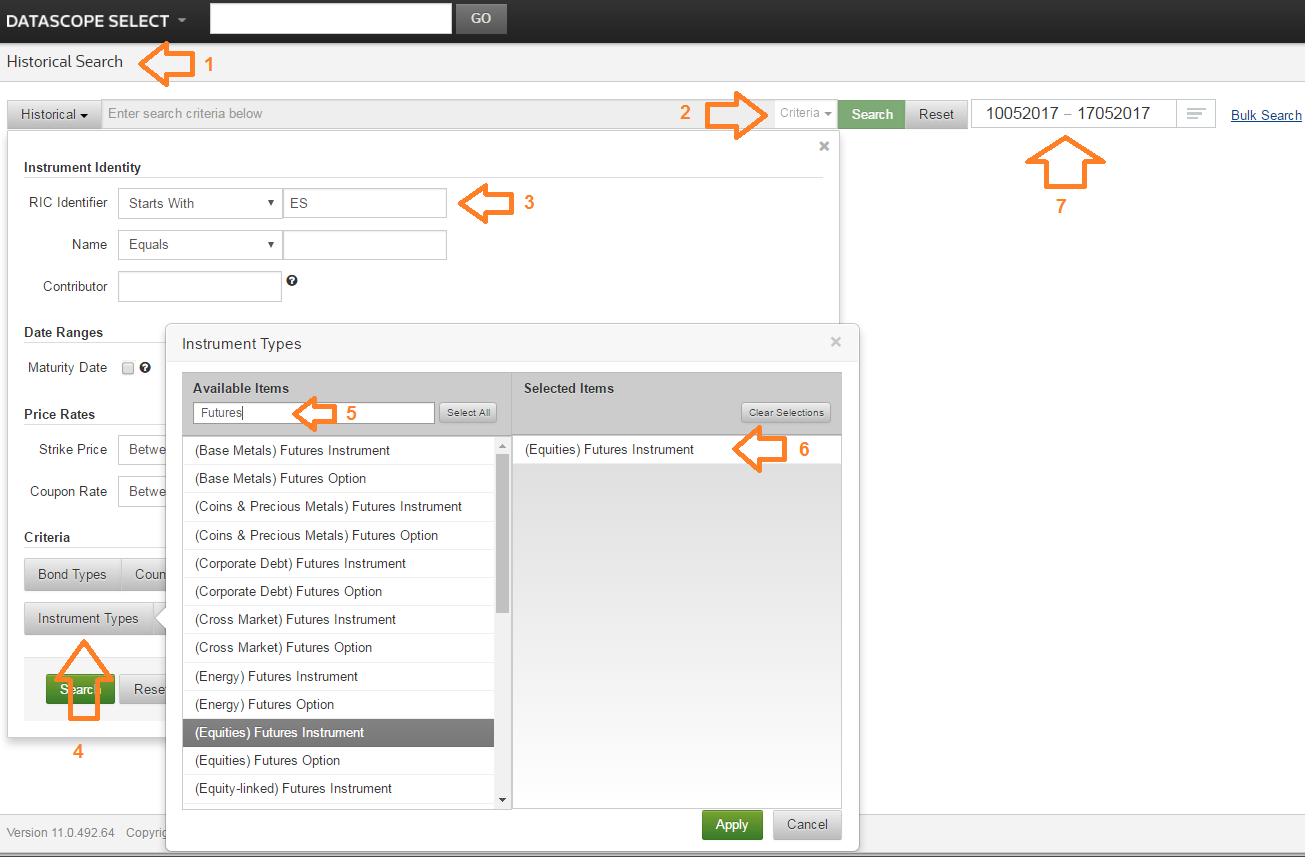1) How can I programmatically get RICs for search criteria like "ES futures" or even "S&P500 E-mini futures"
2) How do the report templates work with recurring invocations when there is an end date in the temple.
3) I need the full rest api spec, so far I only found examples and guides I don't seem to be able to find an actual api doc anywhere




